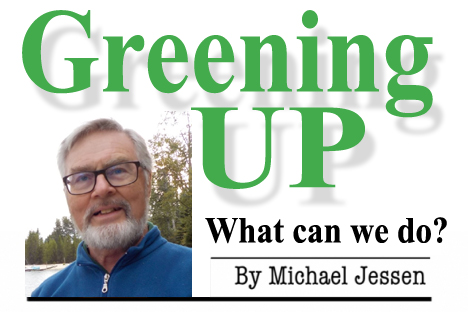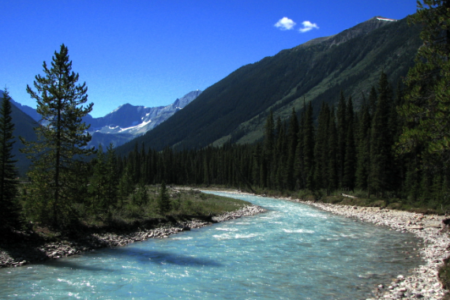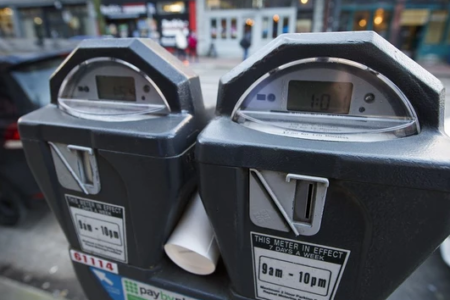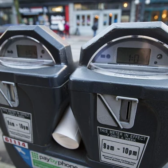Greening Up: Canada, B.C. Are Still For Sale
“Today’s announcement by LNG Canada represents the single largest private sector investment in the history of Canada. I like that sentence so much I’m going to say it again – the single largest private sector investment in the history of Canada.” – Prime Minister Justin Trudeau, October 2, 2018
“I can’t stop smiling.” – B.C. Premier John Horgan
“Today is the best day of my entire professional life.” – former B.C. Premier Christy Clark
“The governments of Canada and British Columbia have helped to ensure that the right fiscal framework is in place to make sure that the pie is divided in a just and fair way.” – Maarten Wetselaar, Shell Global
“Climate change is now reaching the end game, where very soon humanity must choose between taking unprecedented action, or accepting that it has been left too late and bear the consequences.” – Professor Hans Joachim Schellnhuber
“We are told we are living in a society based on law and order and good governance and I believe that when the government doesn’t follow the law it is incumbent upon citizens to hold their feet to the fire.” – Michael Sawyer
Canada and B.C. have put a new spin on an old cliché.
Hewers of wood and drawers of water is a biblical term that the Canadian economist Harold Innis used in the 1930s as shorthand to describe our country’s historic reliance on natural resources – versus “value-added” manufacturing – for economic growth.
The biblical phrase is defined by the Oxford Dictionary as “menial drudges; labourers”.
With the announced go-ahead on the huge, $40-billion LNG Canada liquefied natural gas project in northern B.C., the country and province have fortified reputations as hewers of fossil fuels and drawers of water.
Who would have thought that a Liberal prime minister would attempt to fulfill former Conservative Prime Minister Stephen Harper’s dream of making Canada an “emerging energy superpower”?
But with Trudeau’s enthusiastic support of LNG Canada and his dogged attempts to find ways to get the Kinder Morgan Trans Mountain expansion built, he appears well on the way.
(The Trudeau government announced in May that it would buy the Trans Mountain oil pipeline from Houston-based Kinder Morgan for $4.5-billion and finance an estimated $11.6 billion expansion to allow tar sands oil to be shipped overseas from a port in Vancouver’s Burrard Inlet. The Institute for Energy Economics and Financial Analysis says the deal is fraught with financial risks as it will increase the federal deficit by 36 percent.)
And who would have thought an NDP government would find a way to make Christy Clark’s day?
Curiously, Horgan did it by giving LNG Canada even more financial incentives than those Clark offered the consortium – eliminating the LNG income tax, a lower price for BC Hydro electricity, exemption of the provincial sales tax on construction materials and a rebate on new carbon taxes.
As Marc Lee has pointed out, “This is all in addition to other subsidies currently in place – such as extremely generous royalty credits for fracking operations, which virtually eliminate the public rents gas companies must pay for extracting a public resource, and which subsidize roads and electricity infrastructure.”
(Fracking is where drawing water comes in as 8.8 million cubic metres of water, the majority of which was sourced from surface water, was used to hydraulically fracture wells in B.C. in 2017. According to the BC Oil and Gas Commission, an average of 15,600 cubic metres of water was used per well hydraulically fractured in 2017. The BCOGC reports a total of 5,341,635 m3 of water was used by 31 companies for hydraulic fracturing of 433 wells in 2013.)
So much given away to what will become British Columbia’s largest carbon polluter and to some of the biggest and richest multinationals in the world – the LNG Canada group of five – Royal Dutch Shell, Mitsubishi Corp., Malaysian-owned Petronas, PetroChina Co. and Korean Gas Corp.
Last March the B.C. government promised LNG Canada $5.3 billion in tax breaks if it went ahead with its project.
LNG produces GHGs
Natural gas is a fossil fuel and LNG Canada – touted as the cleanest in the world – admits it will produce 3.45 megatonnes of greenhouse gas emissions annually, including upstream emissions from the gas extraction through the pipeline to processing in Kitimat. These emissions will severely test B.C.’s ability to meet its GHG reduction targets set under the Pan-Canadian Framework on Clean Growth and Climate Change.
Project proponents and supporters state the liquefied natural gas used in Asia will replace more-polluting coal-fired energy plants, thereby justifying increasing GHGs here to eliminate more of them elsewhere, a point disputed by opponents.
Horgan says homeowners, businesses and other sectors of the economy may have to do more to make up the difference to meet the legislated carbon reduction target – 40 percent below 2007 levels by 2030. (By comparison, the European Union has created a binding legal framework to reduce overall greenhouse gas emissions by at least 40 percent by 2030, compared to 1990 levels.)
His government’s plans for how to reach the provincial commitment will apparently be revealed in a clean-growth strategy to be released later this fall.
The LNG Canada and Trans Mountain Expansion projects are playing out while evidence is mounting that countries have to do more to meet the requirements of the Paris Agreement
Price Waterhouse Coopers (PwC) UK has just released its Low Carbon Index 2018 which tracks the progress G20 countries have made to decarbonize their economies. Not a single country in the world is doing enough to cut carbon emissions in line with targets set out in the Paris Agreement, according to PwC’s analysis released October 4th.
Time to get on with it
Their conclusion: it is “time to get on with it” as low carbon energy is lagging behind economic growth. “The Paris Agreement target of limiting warming to two degrees looks even further out of reach,” it warns.
Echoing other recent analyses, the PwC report revealed that far from being cut, global greenhouse emissions actually rose 1.1 percent in 2017.
In August, Jeremy Grantham – a British investor and co-founder and chief investment strategist of Grantham, Mayo, & van Otterloo, a Boston-based asset management firm with more than US$118 billion in assets under management – warned capitalists to wake up to the climate change reality.
In a note to investors – entitled The Race of Our Lives Revisited – Grantham said: “Fossil fuels will run out, destroy the planet, or do both. The only possible way to avoid this outcome is rapid and complete decarbonization of our economy.”
A paper published in October 2016 by eleven climate scientists including Hans Joachim Schellnhuber –a founding director of the Potsdam Institute for Climate Impact Research and ex-chair of the German Advisory Council on Global Change – put it bluntly: “waiting another decade for transformative policy and full commitments to fossil‐free economies, will have irreversible and deleterious repercussions for humanity’s remaining time on Earth.”
Despite these warnings, Trudeau and Horgan have committed Canada and British Columbia to a project that will have climate ramifications for 40 years into the future.
Perhaps we can take some solace from the actions of Smithers environmental consultant Michael Sawyer who is aiming to temporarily derail or delay the LNG Canada megaproject.
Sawyer is arguing that the Coastal GasLink Project, a 675-kilometre pipeline running from Dawson Creek to Kitimat, should have faced a federal review by the National Energy Board instead of relying on provincial approval.
Although supporters are touting natural gas as the clean alternative to coal used in Chinese industry, when everything from fracking and methane leaks to transporting the gas to China is considered, studies have shown that LNG, over its life cycle, is more carbon intensive than coal, Sawyer said.
Weaver calls deal ‘tax giveaway’
Another fierce opponent of the LNG Canada project is Green Party leader Andrew Weaver who calls the deal a “tax giveaway”. A video of his interview on the CBC program Power and Politics shows Weaver at his fulminating best railing against the project for almost nine minutes.
This preposterous rip-off of our natural resources and the damage it will do to our land and water is perhaps most discouraging to young Canadians, those who do not want to become ditch diggers for pipelines or labourers constructing environmentally-damaging infrastructure.
Blue Green Canada’s report, More Bang for Our Buck, found that for every two jobs created in oil and gas, fifteen jobs could be created in clean energy.
What kind of economy are we offering young people? What is limiting our vision?
Why can we not prioritize jobs that help to reduce the consumption of energy, raw materials and water through efficient strategies, to decarbonize the economy and cut emissions of greenhouse gases, to diminish or completely avoid all forms of waste and contamination, and to protect and re-establish ecosystems and biodiversity?
Selling out our province and our country to multinationals not only destroys our environment but that of the whole planet and it weakens our democracy.
LNG Canada is a bad deal. If we had been given a choice between this deal and one that envisioned a sustainable cohort of jobs, I am confident we would not have chosen LNG Canada. We would have put the cliché to rest.
Michael Jessen is an eco-writer and sustainability consultant living at Longbeach near Balfour, BC. Michael can be reached by email at zerowaste@shaw.ca



























